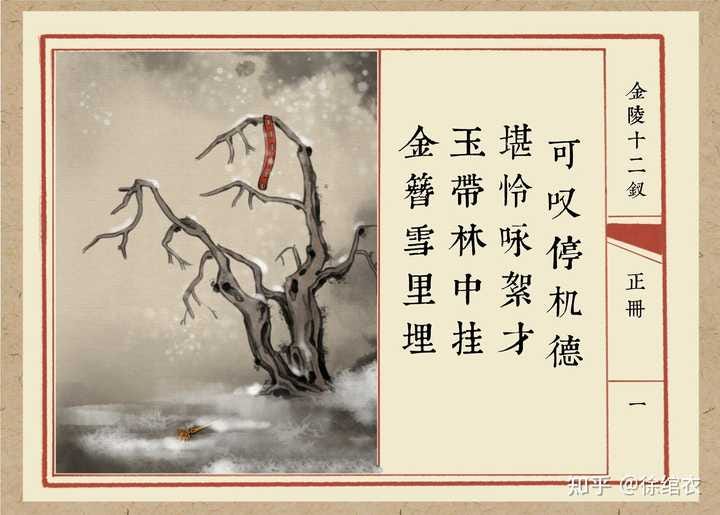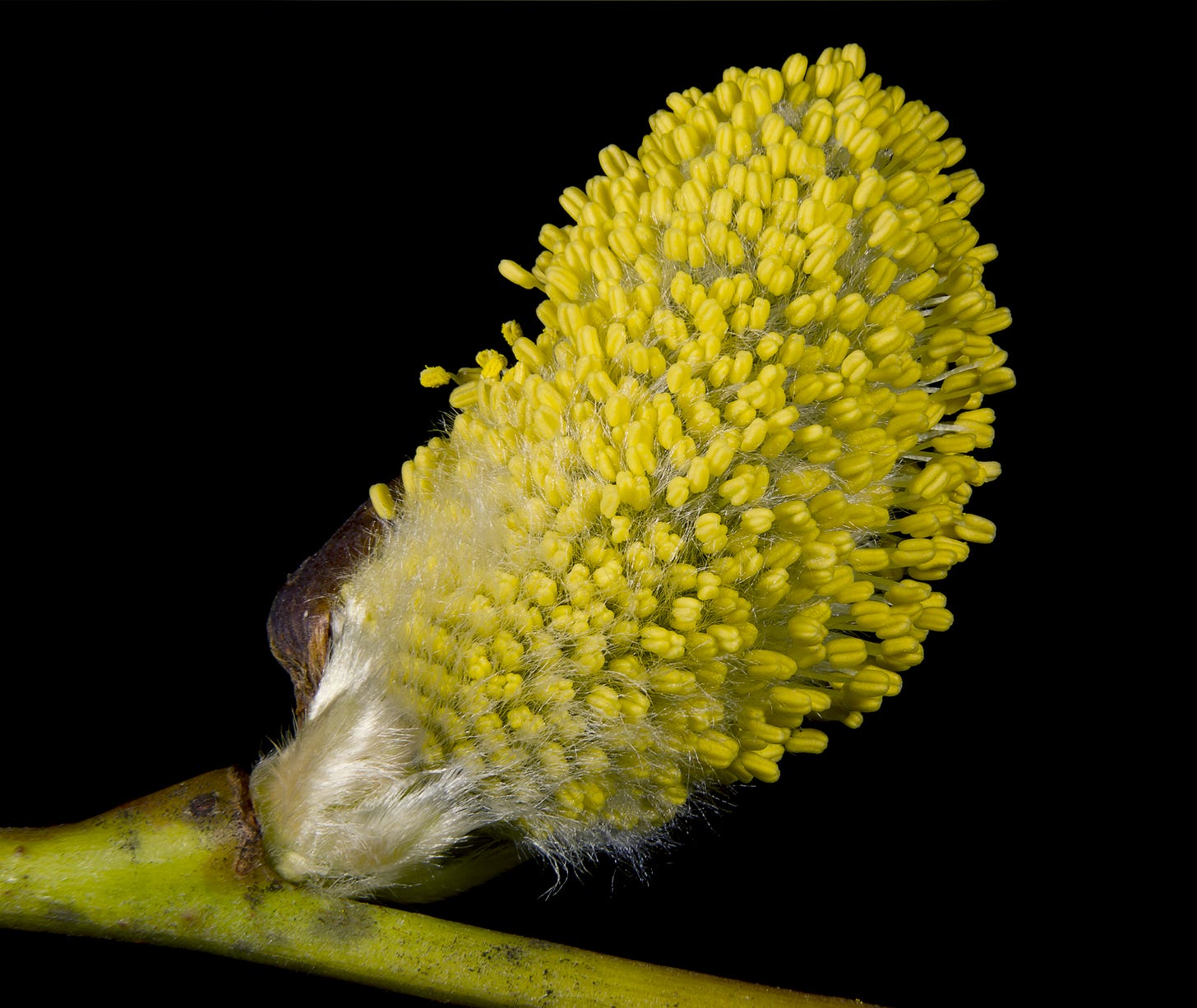Hanging In The Forest, Buried In The Snow
The first thing you need to know is that yesterday’s poem is about both Lin Daiyu and Xue Baochai.
The connection is obvious in the last two lines of the poem in Chinese:
玉帶林中掛
金簪雪裡埋
A jade belt hangs in the woods,
A golden hairpin is buried beneath the snow.
玉帶林 (a jade belt in the woods) is 林黛玉 (Lin Daiyu) backwards. 黛 and 帶 are homonyms. This is the sort of connection that would be obvious to contemporary Chinese readers, and the fact that Jia Baoyu doesn’t see this is kind of strange.
Similarly, 金簪雪 (the golden hairpin in snow) is clearly a reference to 薛寶釵 (Xue Baochai). 雪 (snow) and 薛 are homonyms, 簪 (zān, hairpin) is another word for 釵 (hairpin), and 金 (gold) is analogous with 寶 (precious). The second line is a direct connection to Xue Baochai in a way that is obvious to any careful reader.
There’s more, too. The painting above the poem has obvious references to both girls:
只見頭一頁上畫著是兩株枯木,木上懸著一圍玉帶;地下又有一堆雪,雪中一股金簪。
On the first page he saw a drawing of two withered trees, with a jade belt hanging from their branches. There was a pile of snow on the ground below, and within the snow lay a golden hairpin.
The “two withered trees” (兩株枯木) refer to the surname Lin (林). It’s not hard to see this even if you don’t know a word of Chinese. 林 is made up of two 木 characters side by side. 木 looks like a tree, and actually means tree (it’s pronounced mù and means “tree”). And, again, the jade belt (玉帶) hanging from the tree is an obvious reference to the name Daiyu (黛玉).
The same can be said for the “golden hairpin” (金簪) buried in the snow (雪). It’s an obvious reference to the name Xue Baochai, as described above.
This gives us a pretty big clue as to the fates of both girls. And it’s not going to be pretty, of course. Both images are symbols of abandonment and neglect: precious and valuable objects left alone to wither away and be lost.
But there’s more to this poem than just that.
The first line of the poem can be a little confusing:
可嘆停機德
Alas for her domestic virtue
As I explained in the translation notes yesterday, 停機德 literally means “loom stopping virtue.” It’s a reference to an old story from the Biographies of Exemplary Women about the wife of Le Yangzi during the Eastern Han dynasty. She stopped her loom and ceased weaving to admonish her husband to pursue his studies.
The “virtuous” image here is of a wife who is willing to sacrifice something vitally important to her in order to appeal to her husband. The traditional idea is that a truly virtuous woman would clearly see her place in the home, and would do whatever necessary to exhort her husband to rise to greater heights.
And, of course, in this line it is all for naught. We’re not told why it’s no use, though there’s a pretty big clear implication that it has something to do with the fate of either Lin Daiyu or Xue Baochai.
The second line has a similar implication:
堪憐詠絮才
How unfortunate her poetic wit
As I explained in the translation notes yesterday, 詠絮 refers to a poem by Xie Daoyun, a Jin Dynasty poet who wrote an amazing description of snow. Her line was “未若柳絮因風起,” or “Not unlike willow catkins lifted by the wind.”
A catkin is a kind of small cylindrical flower that looks like fine hair:
It’s a pretty vivid depiction of a certain kind of snow. In fact, this line was so famous that “詠絮” later referred in general to great female poetic talent.
Now, the big question here is whether the first line about 停機德 and the second line about 詠絮才 refers to Lin Daiyu or Xue Baochai. It’s not clear at the moment; after all, we barely know either of the characters. However, as the novel progresses, it will become much more clear.
This poem is one of the most powerful pieces of poetic literature in the entire novel. Cao Xueqin’s ability to use references and images from other sources in such a seamless manner is simply unparalleled. I don’t want to spoil too much of the story at this point; however, as we move along we will come back to this poem pretty frequently. There’s a lot going on here.




